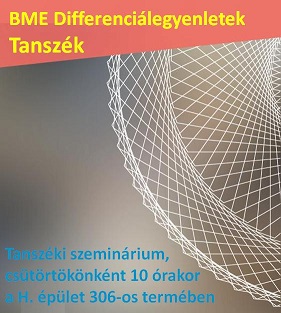2018. March 05.

MEGHÍVÓ
We kindly invite you to the Miklós Farkas Seminar.
8 March (Thursday) 10.15, BME H306
Tamás Turányi (Institute of Chemistry, ELTE Eötvös Loránd University, Budapest)
Chemical Kinetic Optimization and Uncertainty Quantification
Recently developed combustion models based on detailed reaction mechanisms may provide good results. The next question is how accurate the calculated results are, in other words, what is their uncertainty. The main source of uncertainty of the simulation results is the uncertainty of the chemical kinetic parameters. These parameters describe the temperature and pressure dependence of the rate coefficients. A first guess of the uncertainty of these parameters ("prior uncertainty") may be based on directly measured rate coefficients and theoretical calculations. The temperature dependent uncertainty bands of the rate coefficients can be converted to the uncertainty domains of the Arrhenius parameters. Detailed reaction mechanisms can be developed and checked using the results of indirect measurements, like ignition delay time measurements in shock tubes and rapid compression machines, laminar burning velocity measurements, and concentration profile determinations in various reactors. At the optimization of detailed reaction mechanisms, all important rate parameters are fitted in one step within their domain of prior uncertainty using a global optimization method, taking into account all relevant indirect and direct measurements. The results of optimization are the set of the best estimated values of the important parameters that can be obtained from the experimental data considered, and also their covariance matrix, which is a good representation of their joint uncertainty. This posterior uncertainty domain is usually much smaller than the prior uncertainty one. The experimental data are suggested to be stored in ReSpecTh Kinetics Data Format files, allowing software independent and permanent storage. A series of software tools have been developed which allow the determination of prior and posterior uncertainty limits by processing ReSpecTh Kinetics Data Format files.
The organizers
(István Faragó, János Karátson, Róbert Horváth, Miklós Mincsovics)
